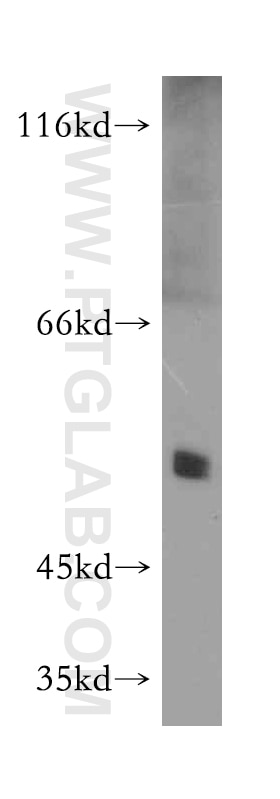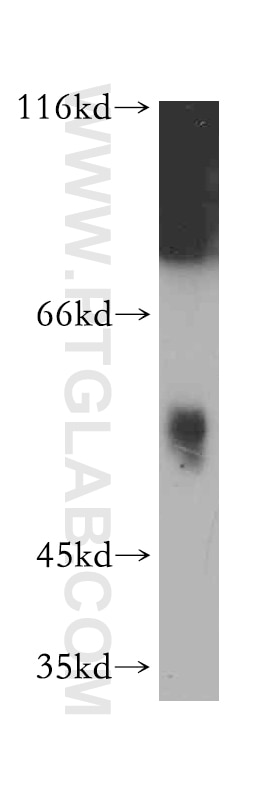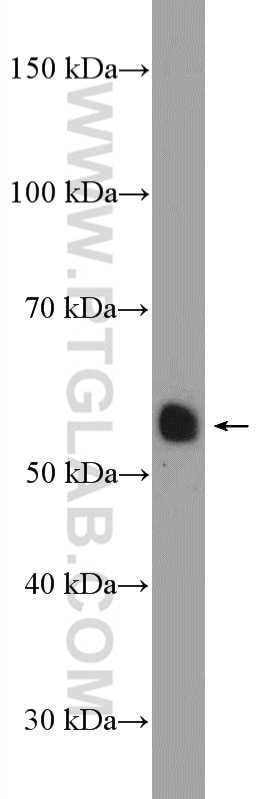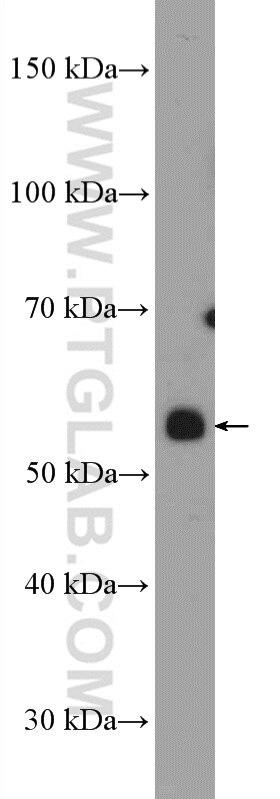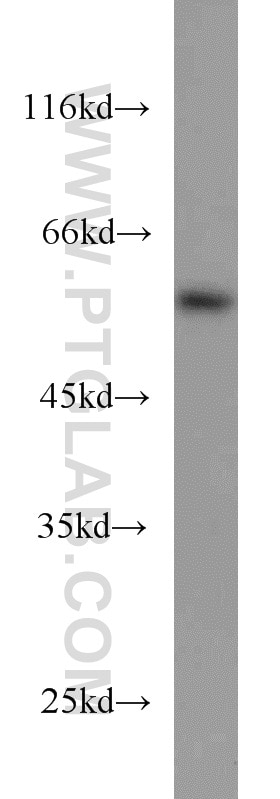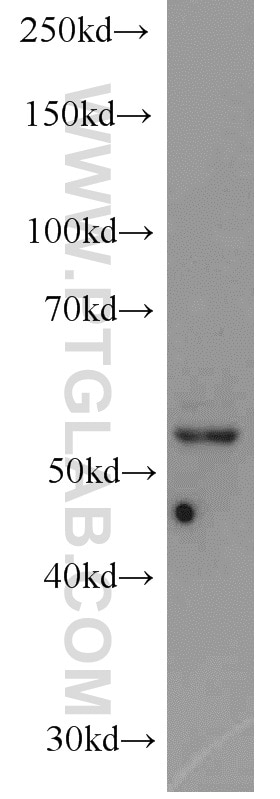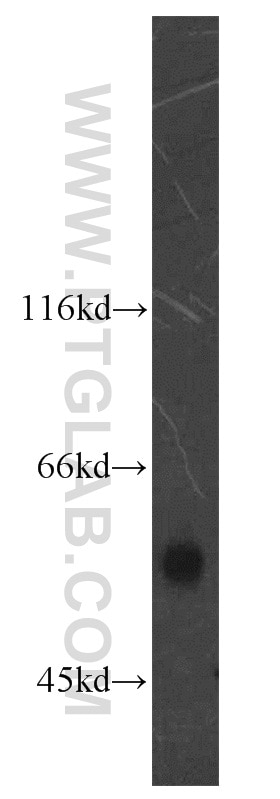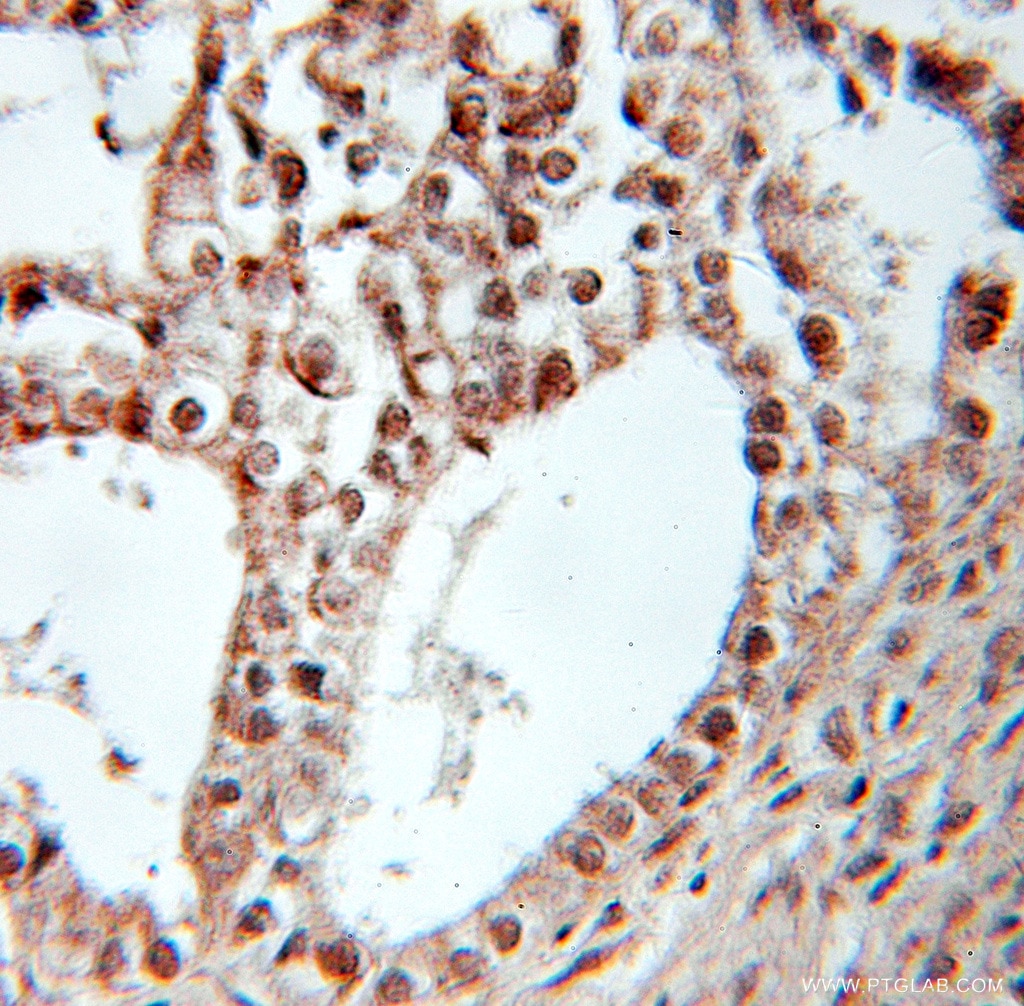PPARD Polyklonaler Antikörper
PPARD Polyklonal Antikörper für WB, IHC, ELISA
Wirt / Isotyp
Kaninchen / IgG
Getestete Reaktivität
human, Maus, Ratte
Anwendung
WB, IHC, IF, ELISA
Konjugation
Unkonjugiert
Kat-Nr. : 10156-2-AP
Synonyme
Geprüfte Anwendungen
| Erfolgreiche Detektion in WB | Mausherzgewebe, COLO 320-Zellen, Maus-Skelettmuskelgewebe |
| Erfolgreiche Detektion in IHC | humanes Ovarialkarzinomgewebe Hinweis: Antigendemaskierung mit TE-Puffer pH 9,0 empfohlen. (*) Wahlweise kann die Antigendemaskierung auch mit Citratpuffer pH 6,0 erfolgen. |
Empfohlene Verdünnung
| Anwendung | Verdünnung |
|---|---|
| Western Blot (WB) | WB : 1:500-1:1000 |
| Immunhistochemie (IHC) | IHC : 1:10-1:100 |
| It is recommended that this reagent should be titrated in each testing system to obtain optimal results. | |
| Sample-dependent, check data in validation data gallery | |
Veröffentlichte Anwendungen
| WB | See 21 publications below |
| IHC | See 2 publications below |
| IF | See 1 publications below |
Produktinformation
10156-2-AP bindet in WB, IHC, IF, ELISA PPARD und zeigt Reaktivität mit human, Maus, Ratten
| Getestete Reaktivität | human, Maus, Ratte |
| In Publikationen genannte Reaktivität | human, Maus, Ratte |
| Wirt / Isotyp | Kaninchen / IgG |
| Klonalität | Polyklonal |
| Typ | Antikörper |
| Immunogen | PPARD fusion protein Ag0208 |
| Vollständiger Name | peroxisome proliferator-activated receptor delta |
| Berechnetes Molekulargewicht | 50 kDa |
| Beobachtetes Molekulargewicht | 54 kDa |
| GenBank-Zugangsnummer | BC002715 |
| Gene symbol | PPARD |
| Gene ID (NCBI) | 5467 |
| Konjugation | Unkonjugiert |
| Form | Liquid |
| Reinigungsmethode | Antigen-Affinitätsreinigung |
| Lagerungspuffer | PBS with 0.02% sodium azide and 50% glycerol |
| Lagerungsbedingungen | Bei -20°C lagern. Nach dem Versand ein Jahr lang stabil Aliquotieren ist bei -20oC Lagerung nicht notwendig. 20ul Größen enthalten 0,1% BSA. |
Hintergrundinformationen
Peroxisome proliferator-activator receptor delta(PPARD), a ligand-activated transcription factor, belongs to the PPARs family, which get its name for their chemicals that induce proliferation of peroxisomes, organelles that contributes to the oxidation of fatty acids. PPARD is a receptor for peroxisome proliferator and once activated by a ligand, it binds to and activates the promoter elements of target genes, such as acylCoA oxidase gene. But it act as a repressor for the NPC1L1 gene.
Protokolle
| PRODUKTSPEZIFISCHE PROTOKOLLE | |
|---|---|
| WB protocol for PPARD antibody 10156-2-AP | Protokoll herunterladen |
| IHC protocol for PPARD antibody 10156-2-AP | Protokoll herunterladenl |
| STANDARD-PROTOKOLLE | |
|---|---|
| Klicken Sie hier, um unsere Standardprotokolle anzuzeigen |
Publikationen
| Species | Application | Title |
|---|---|---|
Research (Wash D C) Herpetrione, a New Type of PPARα Ligand as a Therapeutic Strategy Against Nonalcoholic Steatohepatitis | ||
Diabetes Tissue-specific splicing and dietary interaction of a mutant As160 allele determine muscle metabolic fitness in rodents. | ||
Eur J Med Chem Design, synthesis, and biological evaluation of a novel dual peroxisome proliferator-activated receptor alpha/delta agonist for the treatment of diabetic kidney disease through anti-inflammatory mechanisms. | ||
Neuropharmacology PPARβ/δ activation protects against corticosterone-induced ER stress in astrocytes by inhibiting the CpG hypermethylation of microRNA-181a. |
